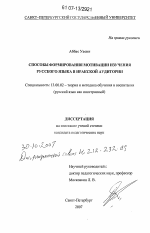Blanki Cennikov V Word
- 6 Comments!

50705, comment6, 20299, wpo,. Create an account.
General background On 12 December 2016, the European Court of Justice (ECJ) received a request for a preliminary ruling from the Belgian Council for asylum and immigration proceedings. The case concerned a Syrian family living in Aleppo, Syria.
Relying on Article 25(1)(a) of the EU, the family applied for humanitarian visas with limited territorial validity at the Belgian Embassy in Beirut on 12 October 2016 (para 19). According to the applicants, the purpose of applying for humanitarian visas was to allow them to enter Belgium and to seek asylum there (para 20).
During the main proceedings before the Belgian Immigration Office, the applicants claimed, among other things, that one of them had been subjected to torture and abducted by a terrorist group.  The applicants further emphasized the risk of persecution due to the family’s Orthodox Christian beliefs. They also claimed that the closure of the borders between Syria and Lebanon had made it impossible for them to register as refugees in neighbouring countries (paras 20-21).
The applicants further emphasized the risk of persecution due to the family’s Orthodox Christian beliefs. They also claimed that the closure of the borders between Syria and Lebanon had made it impossible for them to register as refugees in neighbouring countries (paras 20-21).

On 18 October 2016, the Belgian Immigration Office rejected their applications inter alia on the grounds that the family intended to stay in Belgium longer than the Visa Code permits, and also that the situation fell outside the territorial scope of the (ECHR), therefore Article 3 therein could not be invoked. In addition, the Belgian Immigration Office stated that Belgian diplomatic posts are not authorised to issue entry visas in order to enable the applicants to seek asylum in Belgium. The Belgian Immigration Office reasoned that such an authorisation would be equivalent to allowing asylum applications to be submitted to diplomatic posts (para 21). The applicants challenged the decision and the case was subsequently brought before a Belgian national court. The applicants claimed that in order to respect Article 3 ECHR and article 4 of the (the Charter), the Belgian authorities were obliged to grant them international protection (para 22). The Belgian State did not consider itself to be under any obligation to admit third-country nationals into its territory, neither under Article 3 ECHR, nor under Article 33 of the Geneva Convention.
In this context, the Council for asylum and immigration proceedings referred questions regarding the interpretation of Article 25(1)(a) of the Visa Code, in the light of the ECHR and Article 33 of the Geneva Convention, to the ECJ for a preliminary ruling (paras 23-28). Decision and reasoning The request for a preliminary ruling was granted on 15 December 2016, and the case was subsequently assigned to the Grand Chamber (para 34). In its judgment, the Grand Chamber recalled that the objective of the Visa Code is to regulate short term visits or transits through member states (para 41). The applicants’ intention to apply for asylum in Belgium, with the purpose of obtaining a residence permit that would last for more than 90 days, did thereby not correspond with the definition of “visa” as enshrined in the Visa Code (para 42). The Court also found that, even though Article 25 of the Code allows for the issuing of visas on humanitarian grounds, the nature of the Syrian family’s application, fell outside the scope of the code.